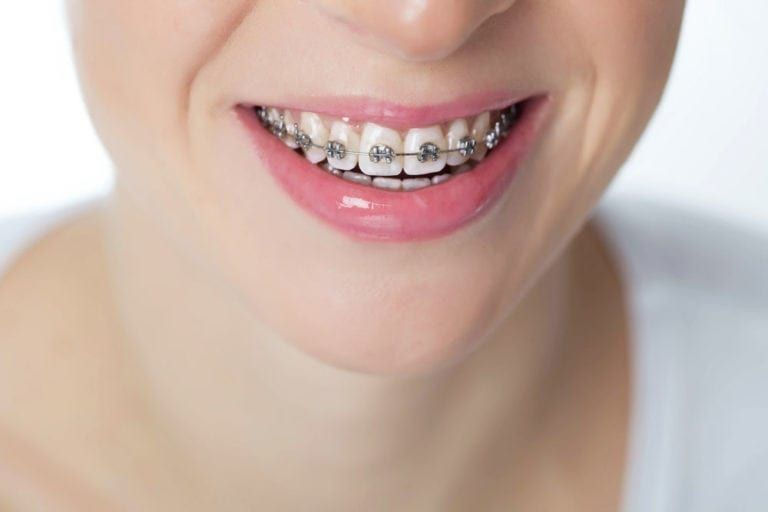Non-Prep Veneers vs Traditional Veneers: What's the Real Difference?
- dclinicdubai
- May 2, 2025
- 4 min read
Cosmetic dentistry has seen remarkable advancements in recent years, with veneers at the forefront of smile transformations. Among the most notable innovations is the rise of non-invasive options such as non-prep veneers. As more people seek fast, effective, and minimally intrusive ways to enhance their smiles, Non-Prep Veneers in Dubai have gained significant popularity. But how do these modern alternatives compare with their traditional counterparts? Understanding the real differences between non-prep and traditional veneers can help patients make an informed, confident choice.

The Basics of Traditional Veneers:
Traditional veneers are thin porcelain shells that require a layer of the tooth’s natural enamel to be shaved down before placement. This prep work ensures a snug, natural fit and allows the veneer to sit flush with the gumline. The procedure is permanent, as the removed enamel does not regenerate. Though highly effective for covering severe discoloration, chips, or misalignment, traditional veneers are irreversible and involve a more invasive approach to cosmetic dentistry.
What Makes Non-Prep Veneers Different:
Non-prep veneers are a more conservative option, designed to be applied directly to the teeth with little to no removal of enamel. They are ultra-thin yet durable, crafted to adhere seamlessly to the existing tooth surface. Since there is no drilling or grinding involved, the natural structure of the teeth remains largely intact. This makes non-prep veneers a preferred choice for patients seeking aesthetic improvements without the commitment of permanent alterations. The non-invasive nature of this solution is one of its most compelling advantages.
Aesthetic Outcomes and Natural Look:
Both types of veneers aim to create a beautiful, natural-looking smile, but the way they achieve this can differ. Traditional veneers often allow for more dramatic changes, particularly in cases involving significant discoloration or tooth damage. Non-prep veneers, while more subtle, offer impressive visual results that maintain the natural contours of the teeth. For individuals with minor imperfections, non-prep veneers can deliver a radiant and refreshed appearance without over-modifying the smile.
Suitability and Candidate Selection:
Not all patients are ideal candidates for non-prep veneers. They work best for individuals with relatively straight, healthy teeth that require minor aesthetic adjustments. Those with severe crowding, large gaps, or extensive decay may need traditional veneers or orthodontic treatment. Dentists in Dubai typically conduct a comprehensive assessment—including digital imaging and bite analysis—to determine which type of veneer is most appropriate. This ensures the chosen solution aligns with the patient’s unique dental structure and cosmetic goals.
Procedure and Time Commitment:
Traditional veneers usually involve multiple appointments, including enamel reduction, temporary veneers, and final placement. This process can span several weeks. Non-prep veneers, by contrast, can often be completed in just one or two visits. Thanks to advanced digital scanning and CAD/CAM technology, many clinics in Dubai now offer same-day veneer solutions. This faster turnaround is a major benefit for patients with tight schedules or those preparing for special events like weddings or public appearances.
Comfort and Recovery:
Because traditional veneers involve enamel removal, patients may experience sensitivity to hot or cold temperatures after the procedure. In contrast, non-prep veneers typically cause minimal to no discomfort, both during and after application. There's no need for local anesthesia or temporary restorations, making the experience more comfortable overall. For patients who are anxious about dental procedures or have sensitive teeth, non-prep veneers offer a significantly less stressful alternative.
Longevity and Maintenance:
With proper care, both traditional and non-prep veneers can last for many years—often over a decade. Maintenance for either type includes regular brushing, flossing, and dental check-ups. However, because traditional veneers are permanently bonded to altered teeth, any damage or detachment typically requires full replacement. Non-prep veneers, being less invasive, may allow for easier adjustments or removals. In Dubai, many dental clinics now offer follow-up care plans tailored to extend the life of both types of veneers.
Cost Considerations in Dubai:
Cost is often a determining factor for patients considering veneers. Traditional veneers may come at a slightly higher price due to the more involved procedure and lab work. However, the gap is closing as more clinics in Dubai offer non-prep options using state-of-the-art technology. The value of non-prep veneers lies in their reduced chair time, reversibility, and comfort—qualities that many patients see as well worth the investment. Flexible payment options are also increasingly common, helping make cosmetic dentistry more accessible to a wider audience.
Choosing the Right Dental Provider:
Whether opting for traditional or non-prep veneers, the skill and experience of the dentist play a crucial role in the outcome. Patients should seek clinics that specialize in cosmetic dentistry and use modern diagnostic tools to plan treatments. A reputable clinic will offer a detailed consultation, discuss the pros and cons of each option, and provide previews of the final look. With the high demand for Non-Prep Veneers in Dubai, it's more important than ever to choose a provider with a proven track record and glowing patient reviews.
Final Thoughts:
When it comes to improving your smile, both traditional and non-prep veneers offer unique benefits. The key difference lies in the level of invasiveness, treatment time, and reversibility. Non-Prep Veneers in Dubai are an excellent option for those who want a dazzling smile with minimal discomfort and commitment, while traditional veneers remain the go-to for more complex dental corrections. Consulting with an experienced cosmetic dentist is the best way to determine which path will bring you closer to your dream smile.


Comments